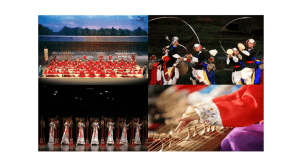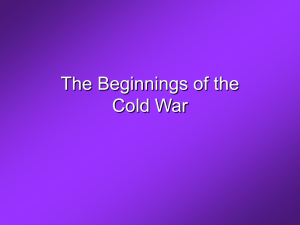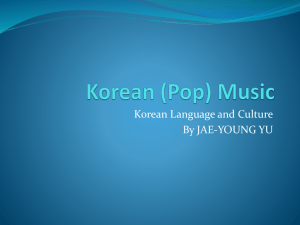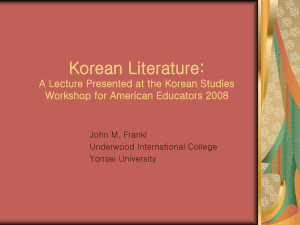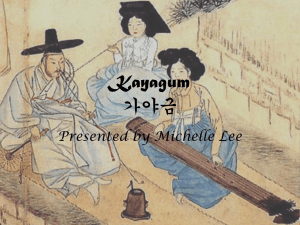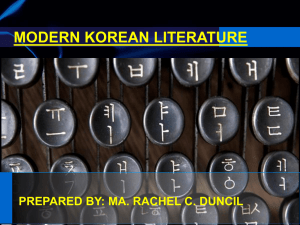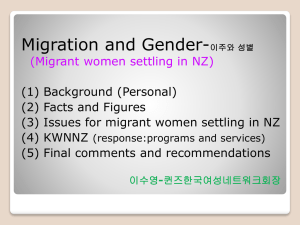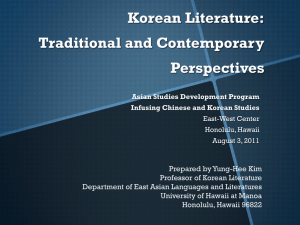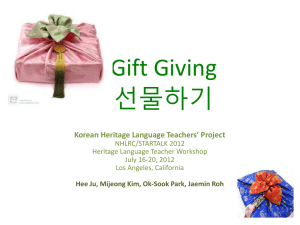File - MLK Library Home
advertisement
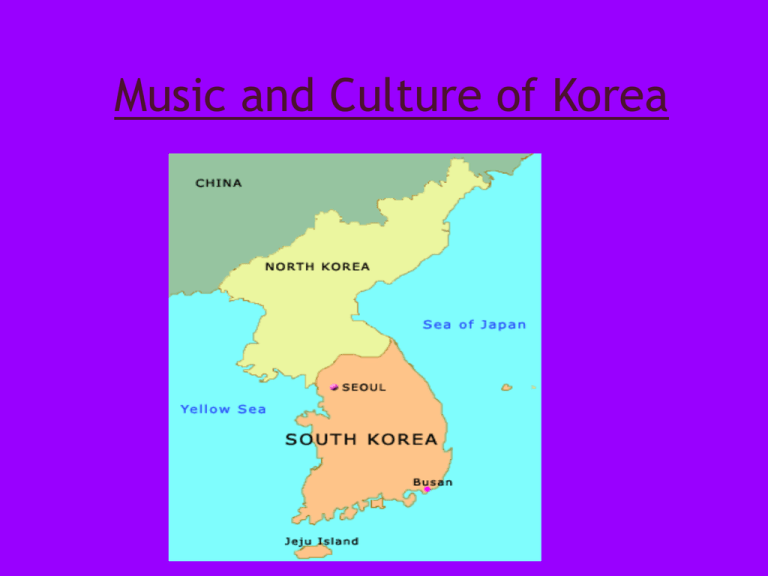
Music and Culture of Korea Korean Folk Music Korean folk music is varied and complex, but all forms maintain a set of rhythms called Jangdan and a loosely defined set of melodic modes. Some of them are called pansori, pungmul, and sanjo. Pansori Pansori is a long vocal and percussive music played by one singer and one drummer. The lyrics tell one of five different stories, but are individualized by each performer, often with updated jokes and audience participation. Pungmul & Sanjo Pungmul is a Korean folk music tradition that is a form of percussion music includes drumming, dancing, and singing. Most performances are outside, with dozens of players, all in constant motion. Sanjo is played without a pause in faster tempos. It shifts rhythms and melodic modes during the song. The tempos increases in each movement. The general style of the sanjo is marked by slow movements and rhythmic complexity in faster movements. Sanjo is entirely instrumental music that shifts rhythms and melodic modes during the song. This is pungmul. This lady is playing the sanjo in Korea. Korean Court Music Korean court music preserved to date can be traced to the beginning of the Choson Dynasty in 1392. It is now rareslides in , except for governmentsponsored organizations like The National Center of Traditional Performing Arts. Some of them are called aak, dangak and hyangak. Aak & Dangak Aak was brought to Korea in 1116 and was very popular for a time before dying out. It was revived in 1430, based on a reconstruction of older melodies. The music is now highly specialized and uses just two different surviving melodies. Modern dangak, like aak, is rarely practiced. Only two short pieces are known. They are Springtime in Louyang and Pacing the Void. This is dangak. Hyangak By far the most extant form of Korean court music today, hyanag includes a sort of oboe, which is a small bassoon, called a piri and various kinds of stringed instruments. Famous Singers Taeyang is a k-pop singer(Korean pop) that sang the song "Wedding Dress". Taeyang sings in Korean,but they translate the language to English. Big Bang is also a Korean band, but does not sing Korean songs. Big Band was discovered during the 20002009 and now they have made a album that has sold millions. Credits Created and Edited by: Ellen Chu Tracy Giuong Pictures from: Google.com Information from: Wikipedia.org
